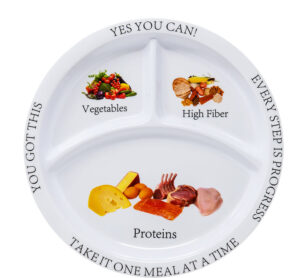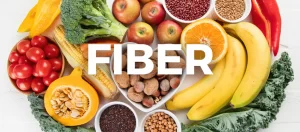Losing weight doesn’t always mean following restrictive fad diets that can leave you feeling deprived and frustrated. In fact, many experts agree that long-term success comes from sustainable, healthy habits that make you feel good about your body. Below are 10 proven ways to lose weight fast, without having to resort to fad diets.
1. Eat More Whole Foods

One of the simplest ways to shed pounds quickly and healthily is by filling your plate with whole, unprocessed foods. Fruits, vegetables, lean proteins, and whole grains are nutrient-dense, keeping you full and energized throughout the day. When you eat foods closer to their natural state, you avoid hidden sugars, unhealthy fats, and preservatives that can contribute to weight gain.
Try swapping out processed snacks for an apple and some almond butter or trade refined grains for whole grains like quinoa or brown rice. These small changes can make a huge difference.
2. Portion Control

You don’t need to eliminate all your favorite foods to lose weight; instead, focus on portion control. Oftentimes, overeating happens when we’re served large portions or are unaware of proper serving sizes. Learning to listen to your body and eating until you’re satisfied rather than full is key to managing weight.
Start by using smaller plates or bowls to naturally reduce your portion sizes. You can also use visual cues, like imagining a deck of cards for protein servings and a tennis ball for fruits or vegetables.
3. Stay Hydrated

Drinking plenty of water can support fast weight loss by keeping you hydrated and boosting your metabolism. Water helps flush out toxins, reduces water retention, and can even prevent overeating. Sometimes, we mistake thirst for hunger, leading to unnecessary snacking. Try drinking a glass of water before meals to curb overeating.
If you find plain water boring, infuse it with fresh fruit slices or herbs for a refreshing twist. And avoid sugary drinks, which can add empty calories and sabotage your weight loss efforts.
4. Incorporate Strength Training

While cardio is often hailed as the ultimate fat-burning exercise, strength training is equally important. Lifting weights or doing bodyweight exercises builds lean muscle, which burns more calories at rest than fat. This means the more muscle you have, the faster your metabolism works, even when you’re not working out.
You don’t need to spend hours at the gym; even 20-30 minutes of strength training a few times a week can help you tone up and burn fat more efficiently.
5. Get Enough Sleep

Getting quality sleep is essential for weight loss. When you’re sleep-deprived, your body produces more ghrelin, the hormone that increases hunger, and less leptin, the hormone that signals fullness. This hormonal imbalance can lead to increased cravings for unhealthy foods and overeating.
Aim for 7-9 hours of sleep per night to allow your body to rest and recover properly. Establishing a regular sleep routine can also improve your overall energy levels, helping you stay active and make better food choices during the day.
6. Manage Stress Levels

Stress can be a major obstacle to losing weight. When you’re stressed, your body produces cortisol, a hormone that encourages fat storage, particularly around the belly. Stress can also lead to emotional eating, where you turn to comfort foods that are high in sugar and fat.
Finding healthy ways to manage stress, like practicing mindfulness, meditation, or yoga, can help you stay on track with your weight loss goals. Regular exercise and deep breathing techniques can also reduce stress and improve your mood.
7. Eat Mindfully

Mindful eating is a powerful tool that helps you develop a better relationship with food. Instead of rushing through meals, take time to savor each bite, noticing the flavors, textures, and aromas. This practice not only allows you to enjoy your food more but also helps you recognize when you’re full, preventing overeating.
Avoid distractions like watching TV or scrolling through your phone while eating. When you’re focused on your food, you’re more likely to make healthier choices and eat just the right amount.
8. Add More Fiber to Your Diet

Fiber is your best friend when it comes to losing weight. It helps you feel fuller for longer, reducing the temptation to snack between meals. Foods rich in fiber also take longer to digest, keeping your blood sugar levels stable and curbing cravings for unhealthy snacks.
Incorporate high-fiber foods like beans, legumes, oats, fruits, and vegetables into your diet. These foods not only promote weight loss but also improve digestion and gut health.
9. Eat Protein-Rich Foods

Protein is another key nutrient for weight loss, as it helps boost metabolism and reduce appetite. High-protein meals can increase feelings of fullness, meaning you’ll naturally eat fewer calories throughout the day.
Opt for lean protein sources such as chicken, turkey, fish, tofu, eggs, and Greek yogurt. Including protein in every meal and snack can help you maintain muscle mass while losing fat, ensuring that your body stays strong and toned.
10. Be Consistent and Stay Active

Consistency is crucial when it comes to losing weight without relying on fad diets. Developing a routine that includes regular exercise and balanced meals will help you achieve your goals more effectively. Whether it’s walking, cycling, or dancing, find activities you enjoy so you’ll stick with them.
Alongside regular workouts, try to stay active throughout the day by taking the stairs, walking instead of driving short distances, or standing up more often at work. These small changes can add up and contribute to faster weight loss.
Conclusion
Losing weight doesn’t have to be complicated or involve restrictive fad diets. By focusing on healthy, sustainable habits like eating whole foods, managing portions, and staying active, you can achieve your weight loss goals in a way that feels good and fits your lifestyle. Remember, the key to success is consistency, and with these 10 proven tips, you’ll be well on your way to a healthier, happier you.
